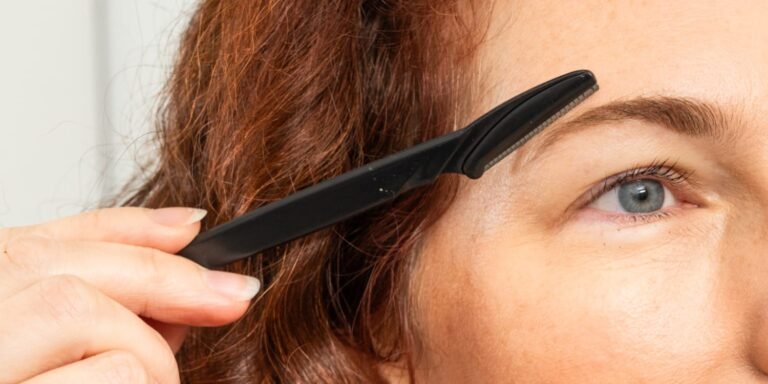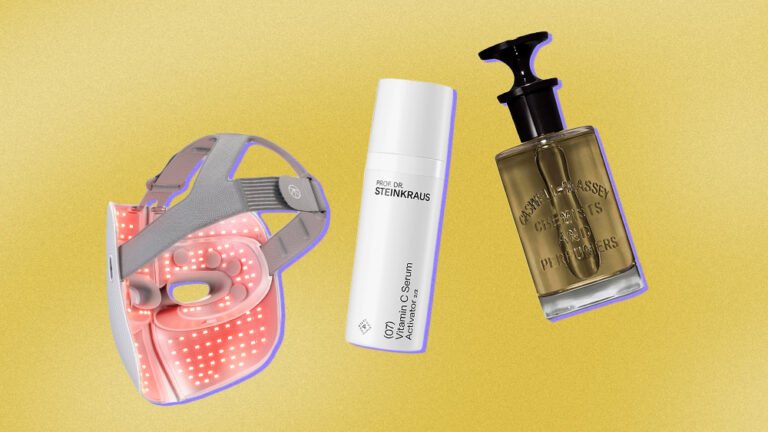Can Vitamin C Help Nails Grow Stronger? A Dermatologist Weighs in

Introduction
Healthy nails are not only a sign of good personal hygiene but also an indicator of overall health. Brittle, weak, or slow-growing nails are common issues that many individuals encounter, leading to frustration and a quest for effective solutions.
When it comes to strengthening nails, people often explore different avenues, including various remedies and supplements. Among these options, Vitamin C has gained attention for its potential role in promoting nail strength and growth.
Key takeaway: In this article, we will consult a dermatologist to find out the truth behind the claim that Vitamin C can help nails grow stronger, and explore other ways to improve nail health based on their expert advice.
Understanding Vitamin C and Its Role in Nail Health
Vitamin C, also known as ascorbic acid, is a water-soluble vitamin that plays a crucial role in various bodily functions. It is well-recognized for its antioxidant properties and its essential role in collagen synthesis. Collagen is a key structural protein in the body, including the nails, and is vital for maintaining their strength and integrity.
Importance of Collagen Synthesis for Nail Health
Collagen synthesis is pivotal for nail health, as it contributes to the formation of the nail bed and cuticles. Inadequate collagen production can lead to brittle, weak nails that are prone to breakage and slow growth. Vitamin C acts as a co-factor for enzymes involved in collagen formation, making it indispensable for the maintenance of healthy nails.
Impact of Vitamin C Deficiency on Nail Health
When there is a deficiency in Vitamin C, the body’s ability to produce collagen is compromised. As a result, nails may become more susceptible to damage and exhibit signs of poor health such as brittleness and slow growth. Therefore, ensuring an adequate intake of Vitamin C is critical for supporting optimal collagen production and subsequently promoting strong and resilient nails.
Recognizing Vitamin C Deficiency Symptoms
In addition to understanding the impact of Vitamin C deficiency on nail health, it’s important to be aware of common symptoms associated with inadequate Vitamin C levels. These symptoms could serve as early indicators of potential deficiencies that might affect not only your nails but also overall health.
Incorporating Vitamin C into Your Routine
By incorporating Vitamin C-rich foods into your diet or using supplements when necessary, you can help maintain the integrity of your nails by supporting collagen synthesis:
- Fruits such as oranges, strawberries, kiwi
- Vegetables like bell peppers, green leafy vegetables, tomatoes
These are excellent sources of Vitamin C that can contribute to overall nail health.
Key Takeaways
Vitamin C plays a fundamental role in nail health through its involvement in collagen production. A deficiency in this essential vitamin can compromise the strength and resilience of nails, making it imperative to prioritize adequate intake through diet or supplementation for optimal nail health.
Examining the Evidence: Can Vitamin C Improve Nail Strength and Growth?
Vitamin C, a popular remedy for various health concerns, is also believed to enhance nail strength and stimulate growth. However, the scientific research in this area is limited, and there is a need for more robust evidence to draw definitive conclusions about its effectiveness for improving nail health.
1. Claim of Vitamin C Benefits
Some anecdotal evidence suggests that Vitamin C can improve nail strength and growth due to its role in collagen production. Collagen, an essential protein abundant in nails, contributes significantly to their strength and integrity. However, the specific impact of Vitamin C on nail health requires further exploration.
2. Limited Scientific Research
Despite the widespread belief in the benefits of Vitamin C for nail health, there is a lack of comprehensive scientific studies supporting this claim. While Vitamin C is crucial for collagen synthesis, the direct correlation between increased Vitamin C intake and significant improvements in nail strength and growth has not been firmly established through research.
3. Need for Robust Evidence
Given the potential significance of Vitamin C in promoting nail health, there is a clear need for more extensive research in this area. Clinical trials focused on evaluating the specific effects of Vitamin C supplementation or increased dietary intake on nail strength and growth would provide valuable insights into its effectiveness.
In summary, while there are indications of the importance of Vitamin C in maintaining overall nail health due to its role in collagen production, the direct impact of Vitamin C on enhancing nail strength and growth requires further substantiation through rigorous scientific investigation. These investigations could include exploring additional factors such as genetic variations and lifestyle choices that may influence the efficacy of Vitamin C supplementation. This article provides further information on the potential impact of Vitamin C on nail health and suggests avenues for future research in this field.
Other Ways to Nourish Your Nails Naturally
While the evidence supporting the role of Vitamin C in nail health may be limited, it is important to note that a nutrient-rich diet is still crucial for overall nail health and growth. Here are some other ways to nourish your nails naturally:
1. Vitamins and Minerals
Various vitamins and minerals play a vital role in maintaining healthy nails. Incorporating these nutrients into your diet can help promote stronger nails. Some key vitamins and minerals for nail health include:
- Biotin: Also known as Vitamin B7, biotin is often recommended by dermatologists for specific nail conditions such as brittle nails. Good food sources of biotin include eggs, nuts, seeds, and whole grains.
- Iron: Iron deficiency can lead to brittle nails. Ensure you are getting enough iron from sources such as lean meat, legumes, spinach, and fortified cereals.
- Zinc: Zinc plays a role in nail formation and repair. Foods rich in zinc include oysters, beef, pumpkin seeds, and lentils.
2. Proteins
Protein is essential for the growth and strength of nails. Include sources of high-quality protein in your diet such as lean meats, fish, eggs, dairy products, legumes, and tofu.
3. Omega-3 Fatty Acids
Omega-3 fatty acids contribute to overall nail health by reducing inflammation and promoting hydration. Add foods rich in omega-3 fatty acids like salmon, walnuts, chia seeds, and flaxseeds to your meals.
While obtaining these nutrients through a well-balanced diet is ideal, in some cases, dermatologists may recommend targeted supplements like biotin for specific nail conditions such as brittle nails. However, it is important to consult with a medical professional before starting any supplements to ensure they are appropriate for your individual needs.
Remember that nail health is not solely dependent on one nutrient or supplement. A holistic approach that includes a well-rounded diet and proper nail care practices is key to maintaining strong and healthy nails.
“A nutrient-rich diet plays a vital role in maintaining healthy nails, with vitamins, minerals, proteins, and omega-3 fatty acids all contributing to nail strength and growth. While supplements like biotin may be recommended for specific nail conditions, it’s important to consult with a dermatologist before starting any new supplements.”
The Importance of Proper Nail Care Practices
Maintaining healthy and strong nails requires good nail care habits. By following a complete nail care routine like the one discussed in this article, you can prevent common problems and promote optimal nail health.
Why Nail Care Matters
Taking care of your nails is important for several reasons:
- Preventing Issues: Proper nail care helps prevent problems like brittle nails, dry cuticles, and nail infections.
- Maintaining Strength: By incorporating good habits into your daily routine, such as those outlined in this resource on how to properly take care of your nails, you can ensure that your nails remain strong and beautiful.
Tips for a Healthy Nail Care Routine
Here are some practical tips to include in your nail care routine:
- Trimming: Regularly trim your nails to keep them at a moderate length. Use sharp, clean nail clippers and avoid cutting too close to the skin to prevent ingrown nails.
- Moisturizing: Apply moisturizer to your nails and cuticles to keep them hydrated and prevent dryness. Consider using products containing ingredients such as shea butter or vitamin E for added nourishment.
- Protection: Wear gloves while performing household chores or gardening to shield your nails from harsh chemicals and prevent trauma. Additionally, avoid using your nails as tools for tasks like opening cans or peeling stickers.
By following these simple yet effective tips, as mentioned by Gray Group International’s blog on healthy nails, you can maintain the health and strength of your nails while minimizing the risk of damage or complications.
Remember, proper nail care goes beyond aesthetics – it is an essential component of overall nail health that should not be overlooked.
Enhancing Nail Condition with External Treatments: Do They Work?
When it comes to achieving stronger and healthier nails, many individuals turn to external treatments like Vitamin C-infused creams or moisturizers in the hopes of improving nail and cuticle health. While these products may offer some hydration and protection benefits, it’s important to understand their limitations and realistic expectations.
Limited Penetration into the Nail Matrix
One key factor to consider is that topical treatments, including Vitamin C creams, have limited penetration into the nail matrix. The nail matrix is the area where new nail cells are formed, and it plays a crucial role in determining nail strength and growth. While a cream or moisturizer may be able to provide some nourishment to the surface layers of the nail and cuticles, they are unlikely to reach deep enough into the nail matrix to have a significant impact on overall nail health.
Hydration and Protection Benefits
That being said, Vitamin C-infused creams or moisturizers can still offer some advantages for maintaining healthy nails. These products typically contain ingredients that provide hydration to the nails and cuticles, helping to prevent dryness and brittleness. Additionally, they can create a protective barrier that shields the nails from external factors such as harsh chemicals or trauma.
Supplementing Overall Nail Care Routine
While topical treatments alone may not be sufficient for achieving stronger nails, they can certainly complement an overall nail care routine. By incorporating Vitamin C cream as a hand moisturizer or cuticle rub into your daily regimen, you can promote hydration and protection for your nails and cuticles. This can be especially beneficial if you have dry or brittle nails that are prone to breakage.
However, it’s important to note that relying solely on external treatments like Vitamin C creams will not address underlying nutritional deficiencies or other factors that may be impacting your nail health. To truly improve nail strength and growth, it’s essential to focus on a holistic approach that includes a nutrient-rich diet, proper nail care practices, and, if necessary, consultation with a dermatologist or healthcare professional.
Expert Tips from a Dermatologist for Optimal Nail Health
When it comes to maintaining strong and beautiful nails, seeking advice from a dermatologist can provide valuable insights. These experts specialize in the health and care of the skin, hair, and nails, making them well-equipped to offer guidance on optimizing nail health. Here are some expert tips from a dermatologist that can help you achieve optimal nail health:
1. Importance of gentle nail handling
One of the key factors in maintaining strong nails is practicing gentle nail care. Avoid excessive manicures or extensions that can put stress on the nails and lead to damage or breakage. Instead, opt for regular, simple trimming and shaping to promote healthy nail growth.
2. Debunking common myths
There are many myths surrounding nail care and products that can mislead people. A dermatologist can help separate fact from fiction. For example, contrary to popular belief, cutting your cuticles excessively or pushing them back too aggressively does not make your nails grow faster or stronger. In fact, it can increase the risk of infection.
3. When to seek medical attention
While most nail issues can be addressed with proper care and maintenance, there are cases where medical attention is necessary. If you notice persistent problems such as chronic brittleness, discoloration, or changes in shape or texture of the nails, it could indicate an underlying condition that requires professional evaluation. A dermatologist can help diagnose and treat any underlying issues affecting your nail health.
By following these expert tips, you can significantly improve the strength and appearance of your nails. However, it’s important to remember that proper nail care is a holistic approach that involves not only external practices but also internal factors such as nutrition and overall health.
In Conclusion
While Vitamin C is well-known for its many benefits to the body, there isn’t enough evidence to fully support its impact on nail health.
Instead of relying solely on Vitamin C or other unproven remedies, it’s important to:
- Maintain a balanced diet that includes essential nutrients for nail health.
- Follow proper nail care practices such as keeping them clean and moisturized.
- Seek professional advice from a dermatologist for any significant nail concerns.
Remember, healthy nails are a result of overall wellness, so taking care of your body in general will also benefit your nails.










